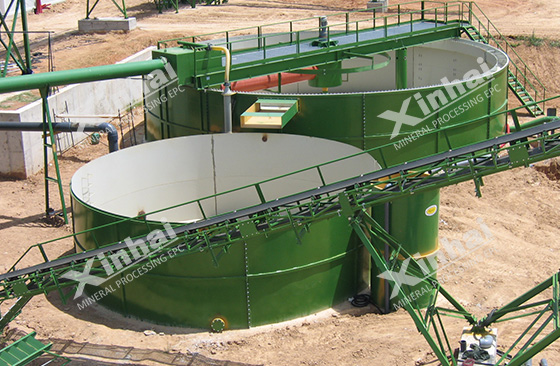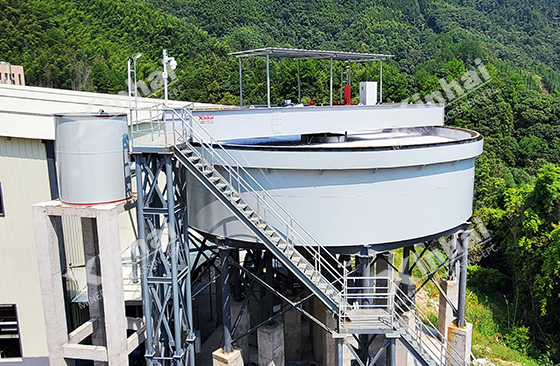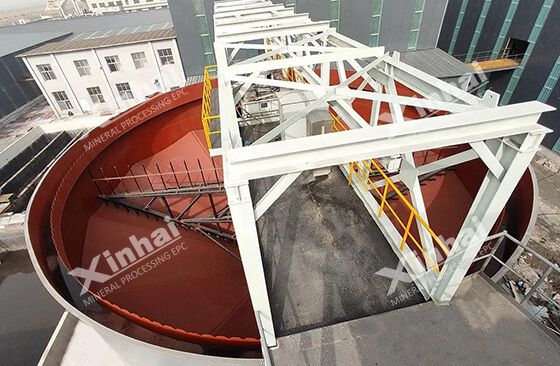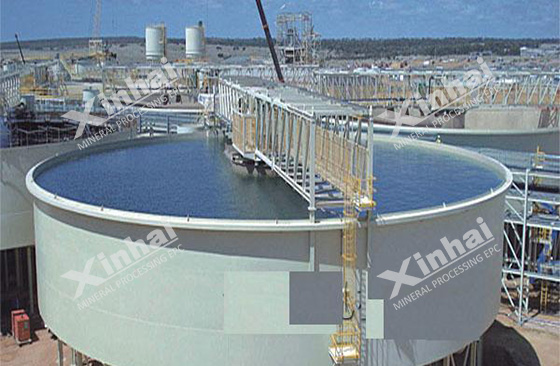
The thickener machine is an important piece of equipment in the mineral processing process. It mainly performs solid-liquid separation of the suspension. During the operation of the thickener, if there is no means of monitoring the load of the equipment, the main shaft of the equipment may be broken. As the age increases, the worm and shell inside the thickener will gradually be corroded and damaged, thus causing equipment maintenance. Increased costs and frequent equipment failures will affect the normal production process of the plant. Therefore, understanding the classification of thickener failures and knowing how to quickly solve these problems is an important way to improve the working efficiency of the thickener and the production efficiency of the processing plant. The following will introduce you to the classification of thickener machine faults and solutions.

According to the quality monitoring method, the factors causing thickener machine failure can be divided into three categories, namely accidental factors, systemic factors and mechanical design factors.
(1) Accidental factors: mainly refers to slight differences in equipment materials, normal grinding and corrosion of equipment, etc. These factors are difficult to identify and eliminate, and will not cause serious harm to the normal use and production of the equipment.
(2) Systemic factors: Mainly refers to incorrect specifications and varieties of equipment spare parts, damage to mechanical transmission devices, failure to operate according to procedures, failure of limit switches, failure of pressure sensors, etc. The faults caused by these factors are relatively obvious and easy to identify, and these factors will seriously affect the service life and production efficiency of the thickener. In response to these factors, daily management, monitoring and reasonable operations need to be strengthened.
(3) Mechanical design factors: The rationality and optimization of equipment mechanical design are mainly determined by the manufacturer. Choosing the right manufacturer is one of the ways to avoid design defects.

According to different fault conditions, corresponding measures need to be taken to eliminate the impact caused by the fault. Here are several troubleshooting methods for you.
(1) Strengthen lubrication management: Lubrication is the main way to maintain equipment. Equipment lubrication specifications require manual management and are not the main problem causing equipment failure. Therefore, increasing awareness of equipment management can reduce the probability of equipment failure.
(2) Timely maintenance and replacement of spare parts: Normal wear and tear of bearings and parts indicates that the service life of the parts has expired and must be replaced. In addition, the procurement and warehousing of spare parts should be strictly controlled to avoid equipment failures caused by unqualified spare parts.
(3) Discover and solve problems in a timely manner: For example, the pressure sensor on the thickener is an electrical device. It can only be discovered when a fault occurs, and it is easier to solve it later.

(4) Prevent overload operation: When the underflow flow of the thickener is large, overload operation is prone to occur. When there is a problem with the quality of the underflow pump or the operator's sense of responsibility is not strong, it is easy to cause a large amount of slag in the thickener. When the underflow pump of the thickener is working, once it is found that the liquid supply is not good and the flow rate is insufficient, the impeller needs to be replaced in time. If leakage occurs, the seal should be replaced in time and a backup pump should be added to prevent overload. The main reason for overload operation is that the underflow in the thickener cannot be discharged in time. Therefore, it is necessary to check the data signal from the pressure sensor to the display in time, and judge whether to discharge the underflow based on the data.
(5) Prevent the deformation of the shaft and the rake frame: There are two main factors that cause the deformation of the shaft and the rake frame: overload operation causes the main shaft to have excessive torque or even breakage, or the service life is long and there is corrosion and wear. When the underflow of the thickener is discharged in time, damage to the stirring device can be avoided.
(6) Prevent turbine worm wear: The turbine rotates slowly, and under ideal conditions zero wear can be achieved if the lubrication is sufficient. However, there are some external factors, and the wear of the worm gear cannot be ignored. When the operation is overloaded, the worm displacement will be large, which will cause the force between the turbine and the worm to increase and cause wear. The lubricating oil or impurities in the oil chamber will cause friction, wear and corrosion. Therefore, the operation of the worm gear needs to be regularly monitored and inspected to avoid equipment failures caused by human factors.

The above content is a brief introduction to the classification of faults and solutions during thickener machine operation. In actual production, there are many factors that affect the work of the thickener. Analysis should be carried out based on the actual situation to determine the cause of the failure and prevent and solve the failure in a targeted manner. This can ensure the efficient operation of the thickener without affecting the production efficiency of the overall mineral processing plant. Xinhai Mining recommends purchasing quality thickeners to reduce maintenance time and investment and operating costs.
To find out more about our products and solutions, please fill out the form below and one of our experts will get back to you shortly.